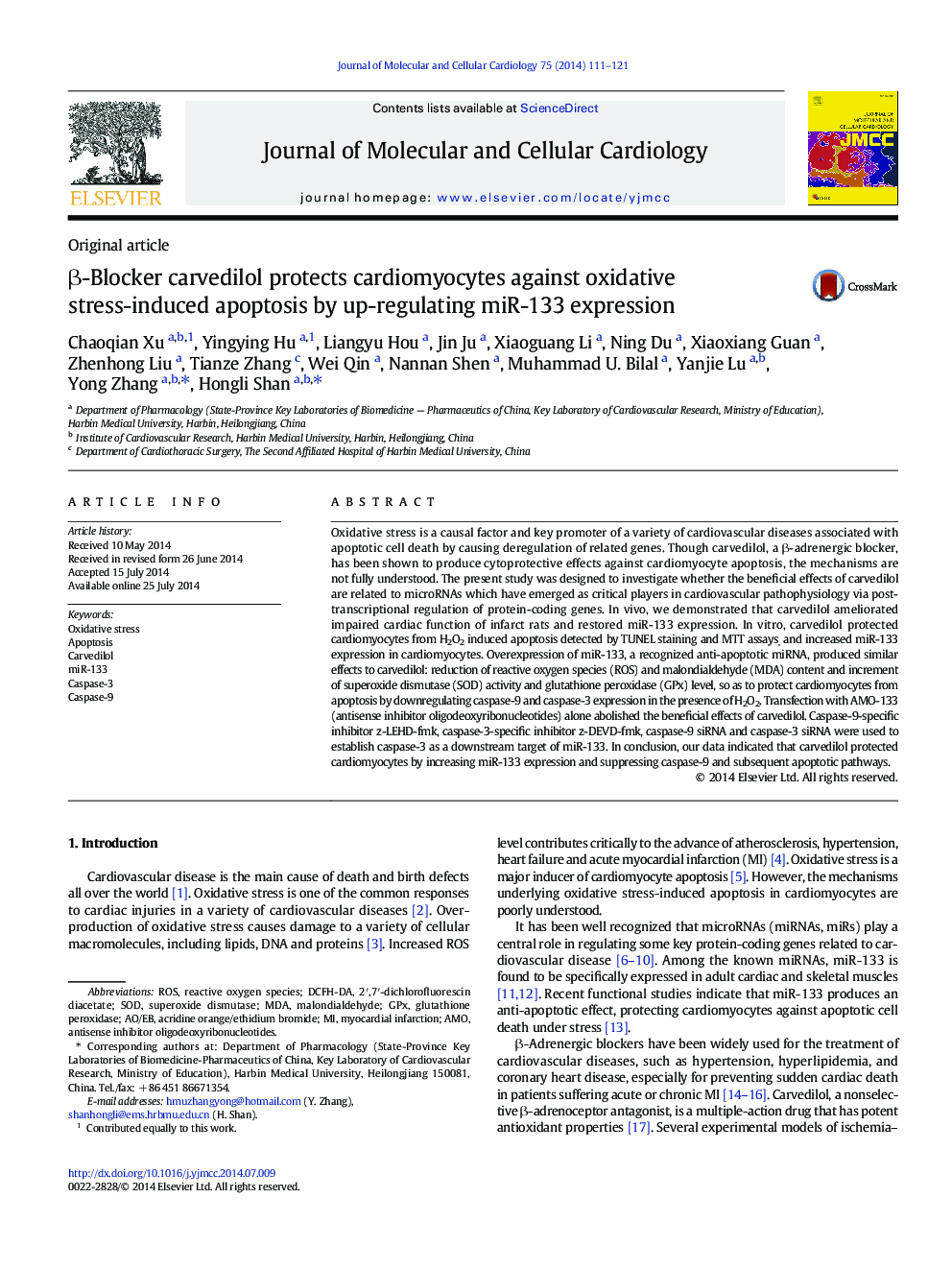| Article ID | Journal | Published Year | Pages | File Type |
|---|---|---|---|---|
| 8474671 | Journal of Molecular and Cellular Cardiology | 2014 | 11 Pages |
Abstract
Oxidative stress is a causal factor and key promoter of a variety of cardiovascular diseases associated with apoptotic cell death by causing deregulation of related genes. Though carvedilol, a β-adrenergic blocker, has been shown to produce cytoprotective effects against cardiomyocyte apoptosis, the mechanisms are not fully understood. The present study was designed to investigate whether the beneficial effects of carvedilol are related to microRNAs which have emerged as critical players in cardiovascular pathophysiology via post-transcriptional regulation of protein-coding genes. In vivo, we demonstrated that carvedilol ameliorated impaired cardiac function of infarct rats and restored miR-133 expression. In vitro, carvedilol protected cardiomyocytes from H2O2 induced apoptosis detected by TUNEL staining and MTT assays, and increased miR-133 expression in cardiomyocytes. Overexpression of miR-133, a recognized anti-apoptotic miRNA, produced similar effects to carvedilol: reduction of reactive oxygen species (ROS) and malondialdehyde (MDA) content and increment of superoxide dismutase (SOD) activity and glutathione peroxidase (GPx) level, so as to protect cardiomyocytes from apoptosis by downregulating caspase-9 and caspase-3 expression in the presence of H2O2. Transfection with AMO-133 (antisense inhibitor oligodeoxyribonucleotides) alone abolished the beneficial effects of carvedilol. Caspase-9-specific inhibitor z-LEHD-fmk, caspase-3-specific inhibitor z-DEVD-fmk, caspase-9 siRNA and caspase-3 siRNA were used to establish caspase-3 as a downstream target of miR-133. In conclusion, our data indicated that carvedilol protected cardiomyocytes by increasing miR-133 expression and suppressing caspase-9 and subsequent apoptotic pathways.
Keywords
Related Topics
Life Sciences
Biochemistry, Genetics and Molecular Biology
Cell Biology
Authors
Chaoqian Xu, Yingying Hu, Liangyu Hou, Jin Ju, Xiaoguang Li, Ning Du, Xiaoxiang Guan, Zhenhong Liu, Tianze Zhang, Wei Qin, Nannan Shen, Muhammad U. Bilal, Yanjie Lu, Yong Zhang, Hongli Shan,
